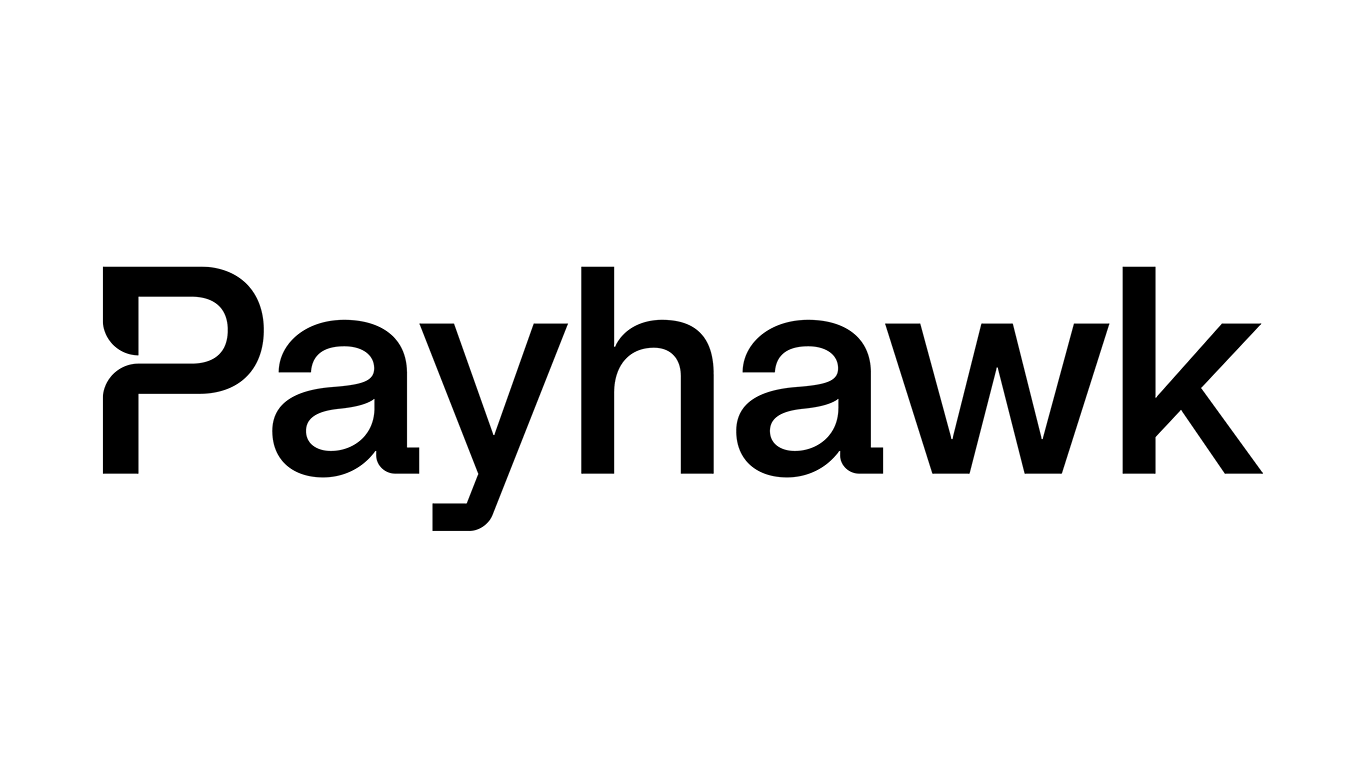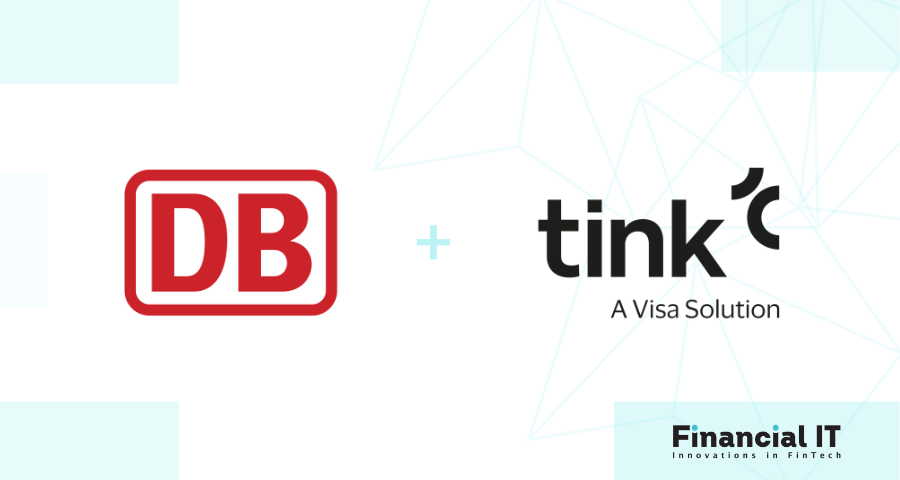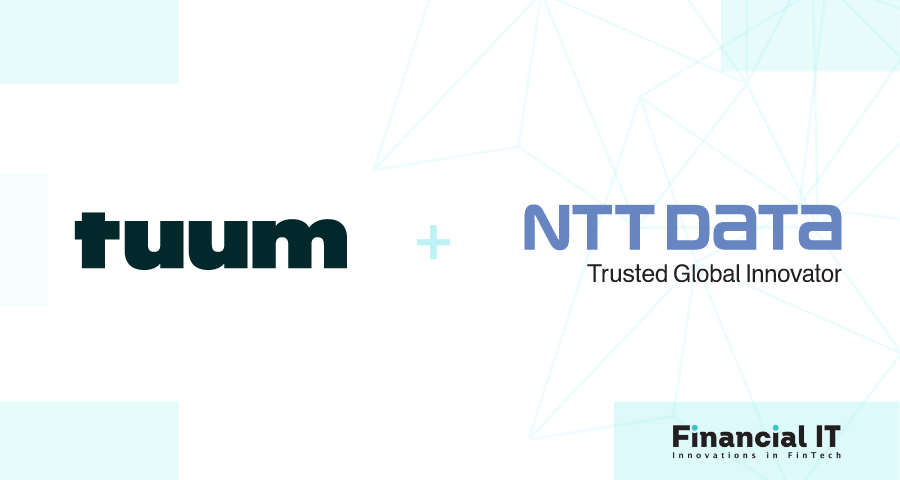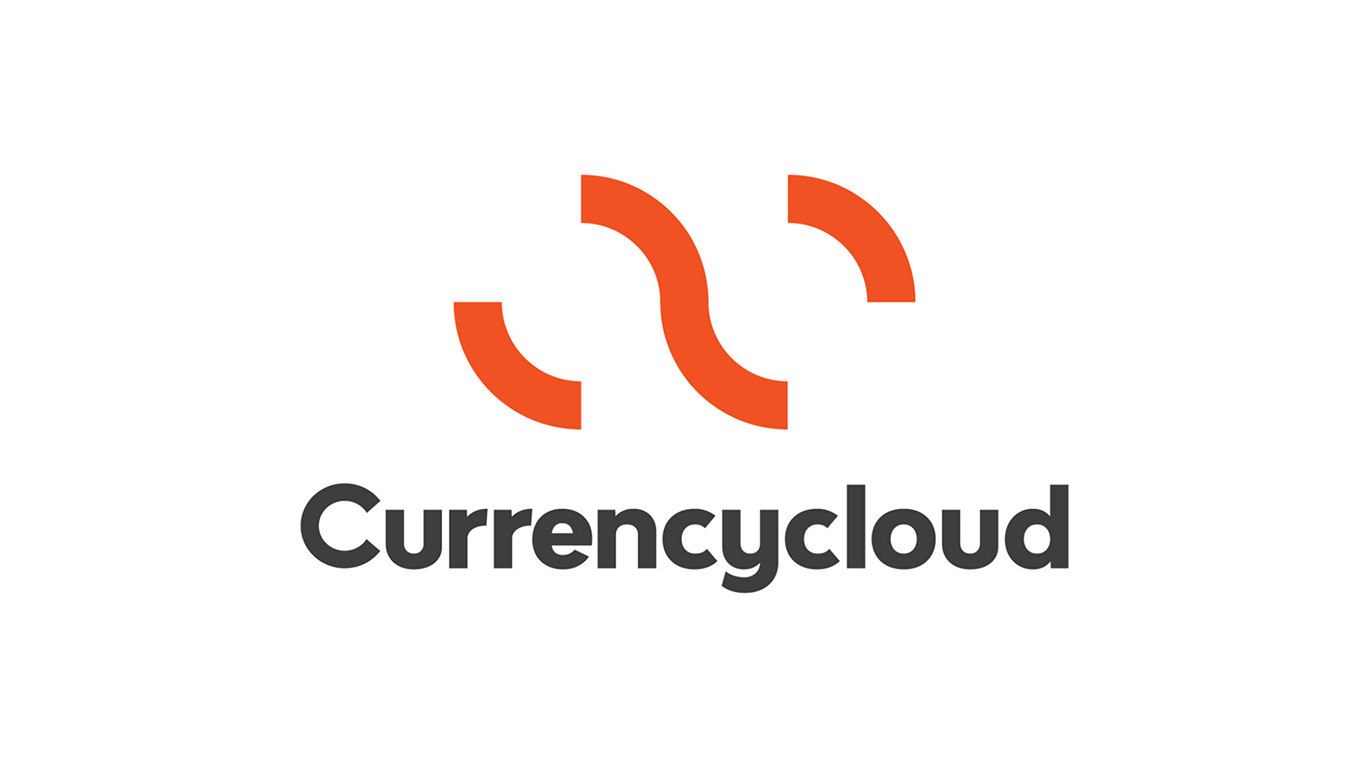Published
- 02:00 am

Today, Visa announced the appointment of Michiel Wielhouwer, previously the Executive Director of Visa’s France, Belgium, and Luxembourg business, to President and Country Manager for Visa Canada. He will succeed Stacey Madge, who served in this role for the past seven years.
Wielhouwer joins Visa Canada at a time of growth and opportunity as the company establishes new secure ways to pay, driven by its innovation and fintech strategy. Wielhouwer will continue to deliver value for Visa’s key clients, partners, and stakeholders while living the company’s purpose to uplift everyone, everywhere by being the best way to pay and be paid.
“I am honoured to step into the role of President and Country Manager of Visa Canada and plan to use my experience from my time in Europe to add value to our partners and the Visa business in this country,” said Michiel Wielhouwer. “I look forward to working with our talented Canadian employees and our strong network of clients and industry partners across the country.”
Wielhouwer is a Visa veteran with 22 years of experience across five different markets. He brings deep financial services knowledge and leadership to Canada. Originally from the Netherlands and a multi-lingual speaker, Wielhouwer’s global background is a welcome addition to the multicultural and bilingual Canadian market.
Wielhouwer steps into the role following the successful leadership of Stacey Madge. In Madge’s seven years with the organization, Visa Canada has seen tremendous growth through new client relationships, fintech collaborations, product innovations, and acceleration of money movement. Under her leadership, Canada has become a talent hub for Visa and a respected payments leader in the country. In her next chapter, Madge will be dedicating her talents to board, community, and foundation work.
“I am very proud to pass the helm to Michiel. His background and experience will be highly valued by the payments ecosystem in Canada,” said Stacey Madge. “He has the backing of a strong and talented team whom I have been honoured to work with.”
“Stacey is a respected leader in the Canadian payments industry and was instrumental in securing Visa’s current position in the Canadian market,” said Kim Lawrence, Visa’s Regional President, North America. “We want to thank her for the many contributions she has made to our organization and the Canadian market and wish her the best as she embarks on her next chapter pursuing board and foundation work.”
Lawrence adds, “Michiel is a fantastic addition to our North American team, and I am confident that our Canadian clients and Visa team will continue to thrive under his leadership.”
Related News
- 01:00 am

Payhawk, the global spend management solution, today released its Spring’24 edition including more than 15 new platform features, making it even easier for companies to manage and control spending at scale.
“I’m delighted to announce our Spring’24 edition, which is packed with features to make it even easier for businesses to manage and control their spending. The focus of this release was adding more flexibility, control and innovation to our world-class corporate cards”, said Hristo Borisov, CEO and Co-founder of Payhawk. “We remain committed to offering our clients the most sophisticated corporate cards on the market”, continued Hristo.
With the release of Visa credit cards in euros for new customers throughout the European Economic Area (EEA), Payhawk is now a single platform businesses can use to easily issue and manage Visa credit and debit cards in multiple currencies throughout the UK, US and the EEA. All Payhawk cards include automatic reconciliation and built-in spend controls to proactively control spending before it happens. With this release, a greater range of card control options is available, allowing finance teams to define even more flexible and granular controls. For example, businesses can now limit card spending to pre-approved vendors, categories of merchants, countries, regions, times and days of the week.
59 new integrations with HR systems such as Workday, Personio, BambooHR, Hibob and SAP SuccessFactors further increase the control and security businesses have on card spending. The integrations sync your company spending with your master employee data, automating the onboarding and offboarding of employees with the appropriate spending controls, and ensuring compliance is maintained, even at large organisations with frequent starters and leavers.
In addition to the new card features, Payhawk released over 10 features to enhance controls and automation, including scheduling invoice payments for streamlining payment runs, segregation of payment duties to enforce the four eyes principle, and a new custom-built AI model to improve data extraction from documents in more than 65 languages.
Finally, Payhawk has enabled third parties to build vetted connected applications by opening up its platform APIs, and launches its first marketplace integrations with ERP systems Odoo and Exact Globe.
“I’m delighted to announce our plans for a Payhawk marketplace, where third parties can build vetted connected applications for our customers. This ultimately enables us to deliver even more value for clients by working with trusted external parties to rapidly grow the number of use cases we provide. This is critical to best address the needs of our diverse client base and harness the power of developers that can contribute with deep localization features.” said Hristo Borisov.
Related News
- 02:00 am

BMLL, the leading, independent provider of harmonised, historical Level 3, 2 and 1 historical data and analytics across global equity, ETFs and futures markets, today announced the appointment of Niall Cameron as Non-Executive Director to support the strategic development of the business. At the same time, Cameron joins BMLL’s group of investors.
A former HSBC, IHS Markit and ABN Amro executive, Cameron is an experienced leader in both executive and non-executive roles with a stellar track record that places him at the intersection of financial markets, digital finance, fintech and data. Today, he brings these experiences together at Fintech Connex, a firm he co-founded in 2020, focused on helping companies on their scale-up journey.
Cameron’s appointment follows a period of accelerated growth for the company, fuelled by its recent Series B $26m funding round supported by Factset, Nasdaq Ventures, IQ Capital and Snowflake Ventures. In 2023 alone, BMLL expanded its global data coverage with the addition of more than 30 data sets from global exchanges, including APAC, EMEA and the Americas and entered into strategic, global data distribution partnerships with Snowflake and Exegy. During this time, BMLL also expanded its global footprint by building a presence in New York and adding 15 team members in the US and the UK.
An expert in financial markets and data, Cameron brings with him extensive experience in strategic positioning, deal-making, and product and commercial advisory for Fintech. His career spans more than three decades. He served as Global Head of Digital Markets (EMEA/MENA) at HSBC, progressing to the role of Global Head of Digital for the commercial and institutional client base, where he implemented a large-scale digital transformation project over several years. Prior to HSBC, Cameron was an executive committee member at IHS Markit, where he served as Global Co-Head of Equities, Indices, Commodities, Risk Management and Economics. He started his career as a trader and then syndicate manager at firms including Merrill Lynch, rising to Global Head of Traded Markets at ABN Amro in the early 2000s.
Cameron said: “I am thrilled to join BMLL as non-executive director. Throughout my career I was fortunate to hold senior executive roles at Markit Group where I learned about the power of financial data. BMLL’s data science capabilities, the depth and breadth of its Level 3, 2 and 1 data are unmatched in the industry. What's more, its collaboration and distribution partnerships are breaking down the barriers to accessing high quality historical data for market participants around the world. I look forward to working with the leadership team and the board in supporting BMLL’s growth strategy going forward”.
Paul Humphrey, CEO of BMLL, added: “I am very excited to welcome Niall Cameron as non-executive director and investor to BMLL. Having worked with Niall at ABN Amro and benefitted from his strategic counsel in my career and again in my early days at BMLL, I witnessed his passion for the industry first-hand. His experience at IHS Markit and HSBC will be invaluable for our executive team and in our growth journey. We look forward to working with him as we continue our mission to democratise access to the most granular order book data and help global market participants understand how markets truly behave”.
BMLL offers banks, brokers, asset managers, hedge funds, global exchange groups, academic institutions and regulators immediate and flexible access to the most granular T+1 order book data and advanced pre and post-trade analytics. BMLL gives users the ability to understand market behaviour, accelerate research, optimise trading strategies and generate alpha more predictably.
Related News
- 02:00 am

Global financial technology leader FIS® has today announced that applications are open for the FIS Fintech Accelerator 2024, its flagship program that supports fintech innovation and growth. The program, now in its ninth year, will select up to ten promising fintech startups to participate in a two-week incubation and 12-week intensive program.
Selected companies will have the opportunity to work closely with FIS experts and executives—as well as potential customers and partners—to gain mentorship, refine their product-market fit, enhance their value proposition, and scale their business. Additionally, selected companies will have access to funding to bring their proof-of-concept to life through FIS. The FIS Fintech Accelerator 2024 will be co-located in Jacksonville and New York as two of the leading fintech hubs in the U.S.
“Tapping into the heart of fintech innovation requires not just an idea, but a supportive environment where that idea can be challenged, honed, and brought to fruition,” said Annie Destefano, Head of Ecosystem Banking, FIS. “Our Accelerator program builds this environment—one that connects ambitious talent with over a hundred key financial institutions, potential investors, and industry peers. It is part of FIS’ broader commitment to fostering and connecting the fintech startup ecosystem, and I’m excited to welcome this year’s talent.”
The power of the FIS Accelerator emerges from its unparalleled position in the global financial ecosystem, with FIS’ technology empowering business transactions worldwide. Since its inception eight years ago, Accelerator alumni have collectively raised over $1.5 billion in capital since completing the program, and have been awarded with nine Finovate awards, a spot in the esteemed ‘GGV Fintech Innovation 50’, and inclusion in the Forbes Fintech 50.
As part of the program’s wider mission, FIS also recently launched the FIS Fintech Hangout Series, a monthly initiative that convenes fintechs, investors, financial institutions, and FIS experts to share insights, best practices, and showcase the amazing work of the participating fintechs. The series kicked off in January with a focus on risk and compliance, and the next open event will be held on April 10 in New York.
Related News
- 06:00 am

Today, Visa announced a 7-year agreement with Western Union. Under the new deal, Western Union customers will be able to send money to their family and friends’ eligible Visa cards and bank accounts in 40 countries across five regions.
The agreement encompasses card issuance, Western Union’s integration with Visa Direct, and value-added services delivery including risk products. Western Union customers will also be able to receive Visa prepaid cards in select markets offering an innovative solution that bridges the physical and digital world.
Western Union and Visa are also developing disbursement programs for humanitarian organizations and governments to support the delivery of critical funds during a disaster. The programs are intended to support emergency and humanitarian payouts, cross-border pension payouts, and domestic benefits and disbursement payouts.
“People rely on remittances to send lifeline payments to their loved ones overseas. When we consider the urgency and need for accessibility, secure payment options with added convenience can make all the difference,” said Chris Newkirk, Global Head of Commercial & Money Movement Solutions, Visa. “Visa’s global scale and Western Union’s digital capabilities are revolutionizing how customers send funds around the world. We are proud to offer more people fast and efficient solutions for cross-border payments.”
“Aspiring populations around the world rely on Western Union to provide them with innovative and accessible financial services that offer flexibility, value and trust,” said Sam Jawad, Head of Ecosystem, at Western Union. “By strengthening our strategic collaboration with Visa, together we will deliver impactful products and services that can help empower our customers to build a life of opportunity for themselves and their loved ones.”
Related News
- 05:00 am

Finastra today announced the appointment of Mike Stawchansky to the role of Senior Vice President, Chief Technology Innovation Officer. Mike is working in the Office of the CEO and is responsible for Finastra’s customer technology and innovation initiatives.
Mike said, “I am so excited to be part of Finastra and I’m truly inspired by the passion and excitement that I see here around delivering innovative and modern technology solutions to our customers. In addition, it is an honor to head up such an advanced generative AI (Gen AI) team. Finastra is ahead of the curve when it comes to educating its workforce on how to use this technology and I can’t wait to build on that, bringing more customer-facing solutions to market which encapsulate Gen AI benefits.”
Reporting to Finastra CEO, Simon Paris, Mike oversees the customer technology senior leadership team, championing operational excellence in this space. He will drive the company’s customer technology and Gen AI innovation initiatives.
Simon said, “Mike brings a wealth of expertise in building modern tech stacks and cloud transformations. His knowledge will be invaluable as we continue to bring our customers open technology solutions which drive business growth and efficiencies, and ultimately empower financial institutions with our relentless commitment to innovation.”
Mike joins Finastra from Collibra, a privately held data intelligence platform, where he was SVP of Platform and Production Engineering. His career spans more than 25 years and also includes senior roles at Salesforce and WebMD.
Related News
- 02:00 am

Deutsche Bahn (DB), the national railway company of Germany, and Tink, a market-leading payment services and data enrichment platform, have partnered up for direct debit setups. DB enables customers using its modern mobility sharing systems, run by the subsidiary DB Connect, to seamlessly connect their bank accounts for easier account onboarding. This includes using Tink’s Account Check for ‘Flinkster’, Germany’s largest car-sharing network, and ‘Call a Bike’, one of the biggest bike-sharing systems in the country – helping people to cut their carbon emissions and travel more sustainably.
Account Check helps to enhance direct debit setups, increases conversion and ensures the correct account will be charged every time a car or bike is used.
Tink’s Account Check works by instantly verifying account details using real-time data straight from a user’s bank account, with explicit consent. Verifying account details reduces the risk of fraud since the information is coming directly from the user’s bank, making the set-up instant, easy, and secure.
By removing the need for manual entry in setting up direct debits, Account Check also minimizes user error, and significantly streamlines the user experience. With instant and frictionless verification, Tink’s product boosts efficiency and enables payments to be taken securely with speed and accuracy.
Clemens Rath, Head of Product Management Bike Sharing at DB Connect commented: “Since we introduced Account Check, only valid direct debit mandates have been generated. Fraudulent direct debit mandates are prevented by validating the data directly with the customer’s bank. This underlines our commitment to the highest security standards and enables us to guarantee the integrity of our service.”
Thomas Gmelch, Director of Payments Sales (DACH) at Tink added: “Teaming up with DB Connect is a great example of how we can help businesses provide the best possible onboarding experience, while also supporting DB in helping consumers to minimise carbon emissions. Account verification can be completed in an instant. And with just a few clicks. It reduces failed payments, helps protect against fraud and boosts efficiency – adding value for both businesses and consumers. By making the process faster and more accurate, we can reduce costs and enhance the customer experience.”
Related News
- 03:00 am

NTT DATA, a global business and IT services leader, today announces the launch of a corporate Center of Excellence (CoE), based in Iberia, focused on using cloud-native technology from Tuum to ease deployments and reduce time-to-market for banks looking to replace core systems.
This alliance between NTT DATA and Tuum will strengthen both companies’ ability to deliver superior customer success. It combines Tuum’s rich functionality, which extends across multiple business lines including accounts, lending, cards, and payments, underscored by its microservices architecture and API-first approach, with NTT DATA’s extensive suite of professional services.
The strategic partnership is designed to integrate Tuum’s smart migration techniques with NTT DATA’s broad spectrum of professional services and successful migration experience to deliver cost-effective, scalable banking solutions worldwide. This enhances the value proposition of NTT DATA’s portfolio, offering robust, full-service capabilities that address the multifaceted needs of today’s financial institutions.
This relationship allows Tuum to focus on what it does best — developing and innovating its platform — while NTT DATA delivers professional services excellence. It is this strategic focus that enables Tuum to maintain the lean capital structure of a product-focused, SaaS company and scale effectively, a point where many fast growth companies stumble.
Center dedicated to core banking modernization
Made up of highly qualified teams, NTT DATA’s CoE operates with consultants specialized in banking with extensive experience of developing digital transformation projects, particularly core banking modernization programs. These involve the adoption of cloud native solutions that are more flexible, and secure, with easier and better integration to break through technologies such as Artificial Intelligence.
A recent NTT DATA research study with 650 global banking decision makers validates that AI and cloud are dual drivers for innovation and growth. In summary, NTT DATA is relentlessly advancing its expertise and resources to help clients navigate and surmount the complexities of digital transformation, ensuring their systems are modernized and primed for the future of finance.
Investment geared towards international projects
The launch of this center was motivated by NTT DATA’s desire to invest in Portugal, but also to take advantage of existing talent to deliver banking modernization solutions for other markets where the company is present. This showcases the company’s global capabilities to drive, develop and integrate end-to-end projects, as well as the expertise that the company holds for years in the banking sector, one of its strongest worldwide.
José Manuel Pérez Bajo, Partner and Head of Banking Modernization at NTT DATA, says ‘We are delighted to partner with Tuum to enhance our Banking Modernization value proposition. At NTT DATA we are convinced that moving business processes and applications to Next Generation Core Banking Platforms is a must in every modernization program within the sector. From our Centers of Excellence in Spain and Portugal we can deliver specialized services, accelerators, and experience to any of our clients in the region.’
Jean Souto, VP Global Partnerships at Tuum, says ‘This alliance with NTT DATA is a milestone for Tuum, marking a significant step in our journey to redefine core banking globally. Through this partnership, we are excited to amplify the impact of our next generation banking platform, driving innovation and efficiency for financial institutions. Our collaborative efforts with NTT DATA’s CoE will ensure that our clients not only keep pace but lead in a rapidly evolving financial landscape, leveraging our agile and adaptive banking solutions tailored for the future.’
Related News
- 07:00 am

Robo.cash analysts studied how the platform's portfolio and investor portrait has evolved since 2017.
According to the research, the average age of active investors has changed from 29 to 37 over the last 7 years. "While previously P2P lending was more interesting for the young population, today alternative investors are becoming more and more similar to an average European in terms of age*. In general, this is a positive moment for alternative investment platforms, testifying to the age-democratic nature of such projects." - experts comment on the results.
More profitable investment projects are chosen mainly by older investors (from 70 years old). "This can be explained by the fact that, as Europeans age, they increasingly adhere to the classic investment theory – the higher the risk, the higher the return. On the other hand, younger people, more inclined to live 'here and now', are choosing investments with a quick payback but lower returns."
There is a direct correlation between the investment period and the investor's balance sheet. The longer people invest, the higher their balance and return. Looking at the main cluster of data, the bulk of Robo.cash investors are concentrated in the range of 200-1500 days in terms of investment period and have balances up to €25k.
"According to our previous assessments, competition in the continental European P2P lending market is decreasing, as is its concentration. This allows us to argue that the portrait of a typical Robo.cash investor, as well as its lifecycle, differs little from other similar platforms. We can assume that the results obtained are largely characteristic of the consumer segment of the European P2P market as a whole”. - summarize the analysts of the platform.
* - As reported by Eurostat, the median age of Europeans is 44.5 years.
Related News
- 09:00 am

Currencycloud, a Visa solution and expert in simplifying business in a multi-currency world, has obtained an In-Principle Approval (IPA) for a Major Payment Institution (MPI) licence holder from the Monetary Authority of Singapore (MAS). The licence will allow Currencycloud to provide a full suite of intra-regional and international services to Singapore businesses.
Currencycloud now offers customers based in Asia Pacific the ability to collect, convert, hold, send, and spend multiple currencies simultaneously across 180 countries and territories. With the Singapore MPI licence, if granted, Currencycloud will gain additional capabilities for a broader suite of services to process intra-Asia and east-to-west payments more quickly, efficiently, and seamlessly.
For businesses in Singapore, customers can make conversions and payouts in their respective time zones and local currencies. By tapping into its global and local networks and multi-currency account infrastructure, Currencycloud can help enterprises launch new financial services quickly, while supporting banks with speedier go-to-market service innovations.
The granting of the IPA of the Singapore MPI licence comes after Currencycloud was awarded an Australia Financial Services Licence that allows the provision of services for the Australian market.
Rohit Narang, Managing Director of APAC, Currencycloud said, “The IPA for a Major Payment Institution Licence is testament to the strength of the Currencycloud brand. Having the license would allow us to integrate with the robust financial network in Singapore and collaborate with valuable industry players. The payments opportunity in Asia-Pacific is significant, and Singapore's excellent infrastructure, world-class regulatory system, and strategic geographical location serve as an ideal base for accelerating future payments innovation across the region.”
Zvi Appel, Co-founder of OPAL, a Currencycloud client in Singapore, explained that Currencycloud is a valuable partner for its business: “They provided us with the ease of use, speed and transparency demanded by our customers today. With new services to be offered, Currencycloud can help us stay competitive while we grow our lines of business within the region and beyond.”
Currencycloud expects to successively roll out its new services in the coming months, to complement its suite of offerings aimed at cutting friction in traditional cross-border money movement.









